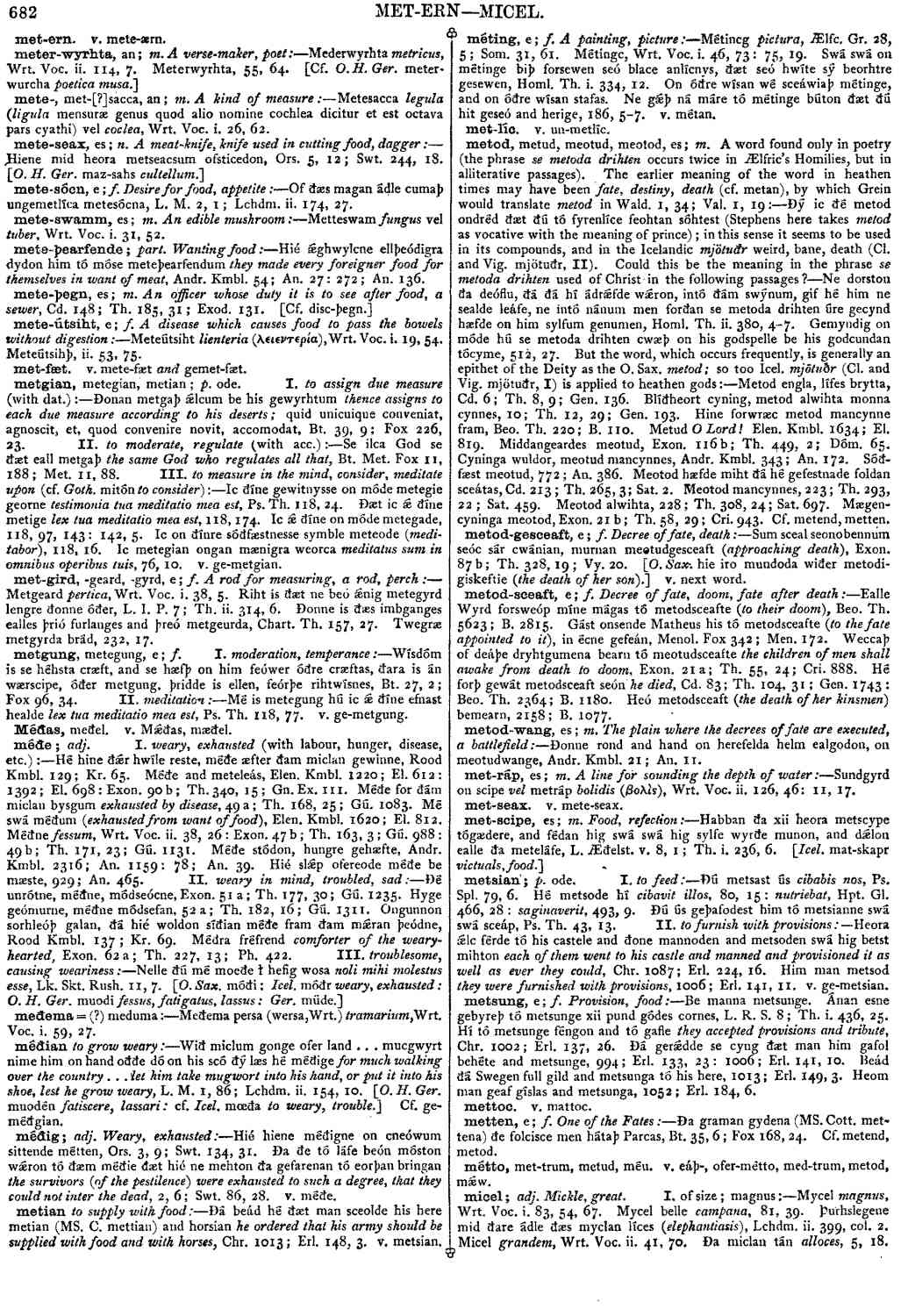méðe
- adjective
-
Hé hine ðǽr hwíle reste, méðe æfter ðam miclan gewinne,
- Rood Kmbl. 129 ;
- Kr. 65 .
-
Méðeand meteleás,
- Elen. Kmbl. 1220 ;
- El. 612: 1392 ;
- El. 698: Exon. 90 b ;
- Th. 340, 15 ;
- Gn. Ex. 111.
-
Méðe for ðám miclan bysgum
exhausted by disease,
- 49 a ;
- Th. 168, 25 ;
- Gú. 1083.
-
Mé swá méðum (
exhausted from want of food
),- Elen. Kmbl. 1620 ;
- El. 812 .
-
Méðne
fessum,
- Wrt. Voc. ii. 38, 26: Exon. 47 b ;
- Th. 163, 3 ;
- Gú. 988: 49 b ;
- Th. 171, 23 ;
- Gú. 1131.
-
Méðe stódon, hungre gehæfte,
- Andr. Kmbl. 2316 ;
- An. 1159: 78 ;
- An. 39.
-
Hié slǽp ofereode méðe be mæste,
- 929 ;
- An. 465.
-
Ðé unrótne, méðne, módseócne,
- Exon. 51 a ;
- Th. 177, 30 ;
- Gú. 1235.
-
Hyge geómurne, méðne módsefan,
- 52 a ;
- Th. 182, 16 ;
- Gú. 1311.
-
Ongunnon sorhleóþ galan, ðá hié woldon síðian méðe fram ðam mǽran þeódne,
- Rood Kmbl. 137 ;
- Kr. 69.
-
Méðra fréfrend
comforter of the weary-hearted,
- Exon. 62 a ;
- Th. 227, 13 ;
- Ph. 422.
-
Nelle ðú mé moeðe ł hefig wosa
noli mihi molestus esse,
- Lk. Skt. Rush. 11, 7.
Bosworth, Joseph. “méðe.” In An Anglo-Saxon Dictionary Online, edited by Thomas Northcote Toller, Christ Sean, and Ondřej Tichy. Prague: Faculty of Arts, Charles University, 2014. https://bosworthtoller.com/22751.
Checked: 1